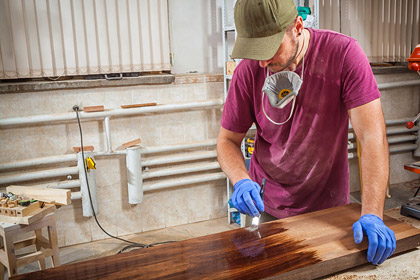Is your Semi-Retirement Plan Realistic?

Semi-retirement can be a great option, giving you more financial freedom, or allowing you to enter those retirement style years a bit earlier than a traditional retirement. The bigger question is, are you really prepared – both financially and mentally?
Planning for Semi-Retirement
Once you’ve determined that semi-retirement is your goal, whether it be a permanent lifestyle decision or just a stepping stone towards full-on retirement, you must then decide how you’re going to accomplish the task.
What do you want to do during your semi-retirement phase, do you have a plan in place for the type of work you would like to do? Will you continue with the job you’re doing now (perhaps at a slower pace), or is it even an option to do so part-time? How much do you plan to work in general, and will this pace continue, or be scaled back as the years go on? Some people will want to continue doing what they’re familiar with and have done for years – others will take a completely different path.
Chris, a Lawyer working from Home
A good example of scaling back your existing career is my friend Chris, a middle-aged lawyer who had decided that he was tired of practicing corporate law and basically “semi-retired” from the professional world. Sick of the office, the fast-pace and life-sucking hours including weekends, he decided to setup his own virtual practice doing phone consults and advisory calls. This was with select clients only and with a focus on areas of interest, parts of the law that he enjoyed and where he gained a sense of accomplishment from being able to help friends and clients through difficult situations. His story is a great example of being able to continue working in your trained profession, but moving in a direction that gives you more freedom and enjoyment from your job, while removing the stress factors and time commitment.
Greg’s Furniture Refinishing Business

Figuring out what you Enjoy
One of the more unique challenges of retirement (or semi-retirement) can be figuring out how to spend your newfound free time. Many envision retirement will be all about relaxation, sitting on a beach or binge-watching television shows…. but then they become bored with the lack of socialization, or are missing the feeling of accomplishment that work provides. This scenario is even more likely to present itself to early retirees who suddenly realize that all of their friends are still in the workforce. They’d love to go out for a round of golf or some drinks at 2 p.m. but quickly realize their friends are stuck at their 9 to 5’s and unfortunately can’t drop everything to join them.
One of the first steps of filling your semi-retirement hours, is figuring out what you enjoy doing right now in your free time. What sort of hobbies do you have and how often do you engage in them currently. Are they things that cost money to do, do they provide opportunities for social interaction and is it something you can do as a job or a part-time business? Also, are these activities you’ll grow bored of quickly or are they something you’ve always done throughout your life and you know you will continue to love? Will turning these things into a money-making venture possibly ruin the enjoyment factor, or can you structure things so you can work at your own pace?
If you decide to go the hobby route, and have chosen a few options you want to explore for income during semi-retirement, you’ll have to ask yourself honestly if it’s an endeavour that you can truly earn money doing. Is this going to be a real business or something that can at least supplement your retirement? How much will you make relative to the time invested and will your sales actually exceed your expenses?
Many people have a hobby in mind to make some extra cash and ease into retirement, but it’s not always realistic or dependable for income when considering the costs. A good suggestion would be to start ahead of time to see how things work out and if people (strangers / not just friends and family) are really interested in buying your product or service. You don’t want to quit your job only to have your semi-retirement plans dashed.
Dennis’ Painting and Repairs
A friends dad retired recently, but enjoys doing handyman type jobs such as painting and general home repairs. He’s still technically working, but only works about twice a week on small jobs and at his leisure. He chooses the jobs he wants to take on and refuses those he doesn’t care for. It’s something he had started doing a few years before retiring and helped him get setup. He has all the tools he needs and knows he gets referrals at least once a week from existing clients and friends. A setup like this gave him the confidence that he would have work available if he wanted it after retiring, even though he doesn’t really need it. If he makes extra cash, it’s put into a vacation fund for him and his wife and allows them to elevate their living standard in retirement. It’s a reasonable and realistic example of the type of semi-retirement many of us could enjoy, perhaps just with a different part-time occupation of your own choice.
Hobby or Side Hustle?
Another really important consideration when planning your semi-retirement job or hobby, is that your choice of work is actually enjoyable. Is this work something that is relaxing most of the time, or is it something that will stress you out? A second consideration is your time commitment and feelings of obligation toward your work tasks that need to be completed. Do your best not to turn your part-time job into a hassle or something you hate doing.
I think when people talk about “side-hustles” these are many times things that you are doing over and above your regular workload to make some extra cash. A lot of the time these end up being jobs you don’t necessarily enjoy or want to be doing all the time. Things like driving for Uber or delivering pizzas probably aren’t the activities you envision when imagining your retirement years. A hobby should be fun, whereas it seems like a side-hustle is more of a grind and a push to make some extra cash in many cases. You want to ensure that your choice of semi-retirement work is enjoyable, or at least pays you well and gives you some sort of benefit in return.
Mike, the Golf Starter

So keep these guiding principles at the top of your mind. This money-making endeavour is ideally a hobby and not a job or hustle if possible. The purpose of your part-time work is to make you some extra money, while not being too stressful. If you’re stressed out the majority of the time, you might be better off to continue working and saving up a little longer toward your retirement goal.
Longevity
Another important aspect to keep in mind when choosing a semi-retirement occupation is how long will you be able to continue doing this job if you’re relying on it as a source of income? Is it a physically demanding job, does it require lengthy hours or hard deadlines? Can you continue doing this as your body ages? Is it more of a physically taxing job such as refinishing furniture, or is it simply sitting at a desk doing legal paperwork? You might actually want work that is relatively active to keep you in shape and in good health, but at the same time you want to ensure it’s not overly strenuous to the point you can’t continue doing it.
Amy’s Real Estate Renovations
Amy, a friend who does contracting jobs plans to flip homes when she is retired. Slowly renovating properties with the skills she’s already gained in the industry, but at her own pace and taking on only the renovation projects she’s comfortable with. It’s definitely something to keep in mind that you may not want to be lugging sheets of drywall or other heavy materials around when you’re older. You probably won’t have the strength or stamina you once had when you were younger. It’s definitely something to consider when planning ahead or how you will transition your role in the business to possibly a less hands-on approach.
Sven’s East Coast Retreat
Sven is a gentleman I met traveling who lives on the east coast, who had an infectious personality and loves the outdoors. His retirement plan involved some minor labour, but he gets help when he needs it. Many times the help moving equipment around actually comes from his clients – or his ‘willing and able’ guests. He’s taken his passion for fishing and the outdoors and provides rentals, guided tours and fishing trips for visitors who want to stay at his ocean side cabin in the summer months. It keeps him busy most of the year with preparation and the busy tourist season, but also provides some downtime in the winter. It brings in enough money to help him with his living expenses and to pay for his hobby and equipment. It’s not overly demanding and something Sven enjoys and plans to do for as long as he’s able to.
Support Yourself and Your Happiness
Semi-retirement is a great option for people who can’t necessarily afford a full-retirement, or those who want to ease into what we think of as traditional retirement, slowly. More independence stems from not being forced to work full-time, choosing what you love to do and choosing how often you’ll do it.
To summarize, here are some key factors to consider when thinking about your semi-retirement goals:
- How much will you be relying on your supplementary income and how much will be required to sustain your desired lifestyle?
- If you plan on turning a passion into a part-time job or business, will you need to invest money? Will you be able to recoup your initial investments or ongoing expenses such as supplies? Make sure it doesn’t turn into a liability.
- Will you enjoy turning your hobby into work? Is it something that is realistic to make money doing? And do you enjoy running a business?
- Can you do this for a long time? Or are there limitations to your plan as you age?
- What sort of fallback options do you have if things don’t work out? Will you have backup sources of income or ideas to generate the income you need?
Remember that semi-retirement is meant to give you more financial freedom and should be relaxing, not stressful. Try to plan an prepare as best you can to ensure your journey goes smoothly and offers you the amazing experience you hoped for.





Hi
I like the different concepts. We focus on achieving Financial Independence by end of 2024, but we‘re flexible. Barista FI or Semi-Retirement could become options for us as well. It’s all about gaining/creating flexibility in life and not being stuck in a corporate ratrace.
Cheers
Thanks for stopping by and commenting. Agreed, there are lots of ways to ease into retirement and sometimes we don’t even know how that will shape up until we get there!